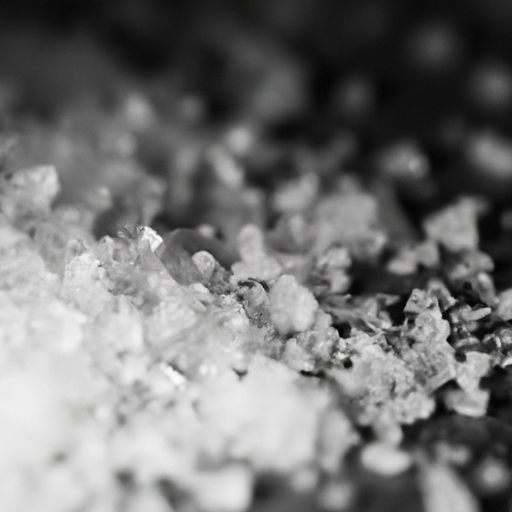
In this article, you will learn about the effects of consuming a high-salt diet on your health. Discover the potential risks and complications that come with excessive salt intake and how it can affect various aspects of your overall well-being. By understanding the impact of a high-salt diet, you can make informed decisions about your dietary choices and take steps towards maintaining a healthy lifestyle.
Consuming a high-salt diet can have numerous negative effects on your health. It can lead to increased blood pressure, which puts you at a higher risk of developing heart disease and stroke. Additionally, excessive salt intake can contribute to water retention, leading to bloating and weight gain. It can also have a negative impact on your kidney function and bone health. By being aware of these implications, you can make conscious efforts to reduce your salt intake and prioritize a balanced diet for optimal health.
Overview
Habits and choices related to our diet can have a significant impact on our overall health. One such choice that can greatly affect our well-being is our consumption of salt. Salt is a common ingredient used to enhance the flavor of our meals, but when consumed in excess, it can have detrimental effects on various aspects of our health.
In this article, we will delve into the effects of a high-salt diet on our health, exploring its impact on blood pressure, cardiovascular health, kidney function, fluid balance, bone health, digestive system, brain and nervous system, weight management, and overall well-being. By understanding these effects, you can make informed decisions about your salt intake and take necessary steps to maintain a healthy lifestyle.
Introduction to high-salt diet and its impacts on health
A high-salt diet refers to the consumption of excessive amounts of sodium, the primary component of salt. On average, individuals consume far more salt than the recommended daily intake of 2,300 milligrams. This excessive intake can lead to numerous detrimental effects on our health.
Effects on Blood Pressure
One of the well-established impacts of a high-salt diet is its contribution to increased blood pressure levels. When sodium levels in the body rise, it leads to water retention, resulting in an increase in blood volume. The higher blood volume puts additional strain on the arteries, leading to elevated blood pressure levels.
Increase in blood pressure levels
Elevated blood pressure, or hypertension, is a significant risk factor for various cardiovascular diseases, including heart attacks and strokes. People with high blood pressure are more likely to encounter health complications that can be life-threatening.
Impact of high-salt diet on hypertension
While hypertension can have multiple causes, a high-salt diet is known to contribute to its development and progression. By reducing salt intake, one can effectively lower their blood pressure and mitigate the risk of hypertension-related complications.
Cardiovascular Health
The impact of a high-salt diet extends beyond blood pressure. It also poses a higher risk of cardiovascular diseases.
Higher risk of cardiovascular diseases
Studies have shown a strong link between excessive salt intake and cardiovascular conditions such as coronary heart disease, congestive heart failure, and even irregular heart rhythms. These conditions can significantly impact heart health and overall well-being.
Impact on heart health
Excessive salt intake can result in the thickening and stiffening of the heart muscle, making it harder for the heart to pump blood efficiently. This can lead to an increased workload on the heart and potential long-term complications.
Kidney Function
Another organ significantly affected by a high-salt diet is the kidneys. The kidneys play a crucial role in removing waste products from our bodies and maintaining fluid balance.
Negative effects on kidney function
Excessive salt intake can place an enormous burden on the kidneys, leading to reduced efficiency in filtering waste and maintaining fluid balance. This can result in an increased risk of kidney dysfunction and kidney diseases.
Increased risk of kidney stones
A high-salt diet can also contribute to the formation of kidney stones. The excess sodium in the body can lead to an increased concentration of calcium in the urine, which increases the likelihood of crystal formation and stone development.
Fluid Balance
Salt plays a vital role in maintaining fluid balance in our body. However, excessive salt intake can disrupt this delicate balance and lead to several health issues.
Disturbances in fluid balance
When we consume too much salt, our body responds by retaining water to dilute the sodium concentration. This can lead to fluid imbalances, causing issues such as edema (swelling), bloating, and overall discomfort.
Dehydration and electrolyte imbalances
Paradoxically, a high-salt diet can induce dehydration. The retained water from excessive salt intake pulls fluids away from important organs and tissues, leading to dehydration. Additionally, the imbalances in electrolytes, such as potassium and magnesium, can further worsen overall health and potentially lead to serious complications.
Bone Health
Salt has been linked to negative impacts on bone health, particularly in terms of bone density and the risk of osteoporosis.
Negative impact on bone density
Excessive salt intake has been associated with increased calcium excretion through urine. Calcium is an essential mineral for maintaining strong and healthy bones. When the body loses excessive calcium, it can lead to decreased bone density over time.
Increased risk of osteoporosis
Low bone density increases the risk of osteoporosis, a condition characterized by weak and brittle bones. Osteoporosis makes individuals more prone to fractures, joint problems, and a diminished quality of life.
Digestive System
The digestive system is sensitive to the foods we consume, including the amount of salt in our diet. Excessive salt intake can have negative effects on digestive function and increase the risk of certain conditions.
Negative effects on digestive function
High salt consumption has been associated with an increased risk of stomach cancer. The exact mechanism linking salt intake and cancer development is not fully understood, but excessive salt is believed to contribute to the growth and proliferation of cancerous cells in the stomach lining.
Increased risk of stomach cancer
Stomach cancer is a serious and often life-threatening disease. By moderating salt intake, you can reduce the risk of developing this type of cancer and maintain a healthy digestive system.

Brain and Nervous System
The brain and nervous system are not exempt from the detrimental effects of a high-salt diet. Excessive salt intake has been linked to cognitive decline and an increased risk of neurodegenerative disorders.
Cognitive decline and neurodegenerative disorders
Studies have shown a correlation between high salt consumption and cognitive decline in elderly individuals. Additionally, excessive salt may contribute to the development and progression of neurodegenerative disorders such as Alzheimer’s and Parkinson’s diseases.
Impact on brain health
By adopting a low-salt diet, you can potentially reduce the risk of cognitive decline and neurodegenerative disorders, safeguarding your brain health for years to come.
Weight Management
In our strive for weight management and maintaining a healthy body, a high-salt diet may hinder our progress.
Higher risk of obesity
Research suggests that a high-salt diet may increase the risk of obesity. Excess sodium intake can lead to increased water retention and bloating, making individuals feel heavier. Moreover, salt can affect the body’s metabolism, potentially slowing it down and making weight loss more challenging.
Impact on metabolism and appetite regulation
A high-salt diet can disrupt the delicate balance of hormones responsible for regulating appetite. It may lead to increased cravings for salty and unhealthy foods, potentially contributing to weight gain.

Conclusion
In conclusion, a high-salt diet can have numerous detrimental effects on our health. From increased blood pressure and cardiovascular risks to compromised kidney function and disrupted fluid balance, the impacts are far-reaching. Additionally, bone health, digestive function, brain and nervous system, and weight management can all be negatively influenced by excessive salt intake.
To maintain a healthy lifestyle, it is crucial to moderate salt consumption and be mindful of the amount of salt added to our meals. By doing so, you can mitigate the risks associated with a high-salt diet and ensure your long-term well-being.


